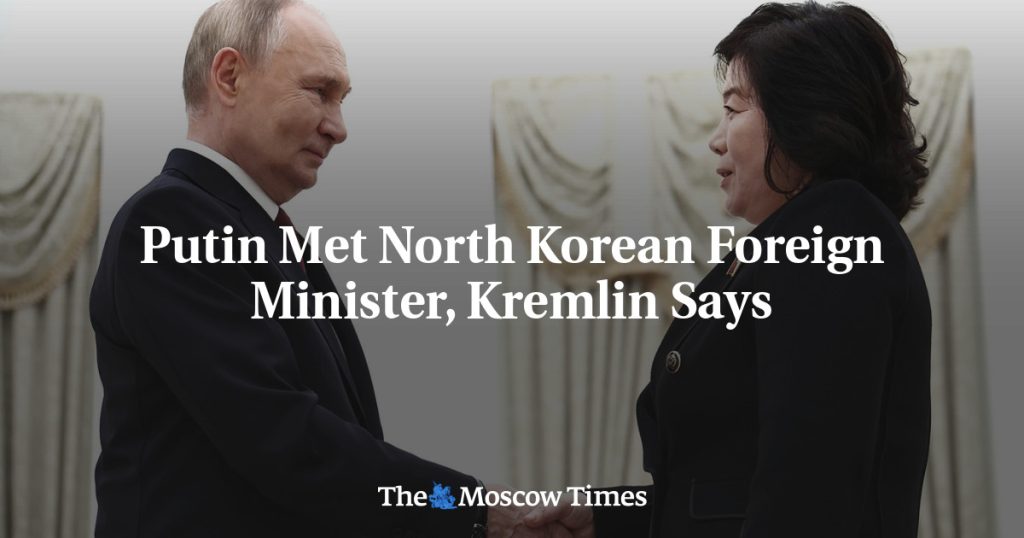Russian President Vladimir Putin recently met with North Korean Foreign Minister Choe Son Hui in the Kremlin amidst claims that Russia plans to deploy thousands of North Korean troops to the Ukraine conflict. Choe, who has been in Russia for a week, pledged that North Korea would stand by Russia until its victory in Ukraine. Putin did not deny the possibility of North Korean troop deployment when asked about it publicly last month, and the Kremlin published a video of the meeting between Putin and Choe, showing them shaking hands ahead of talks.
In a Russian translation, Choe thanked Putin for meeting her and conveyed well wishes from North Korean leader Kim Jong Un. During her talks with Russian Foreign Minister Sergei Lavrov, Choe expressed North Korea’s commitment to being by Russia’s side in what she called a “sacred struggle” in Ukraine. The West has claimed that around 10,000 North Korean troops are in Russia and could potentially be sent into combat soon. This meeting coincided with German Foreign Minister Annalena Baerbock’s visit to Kyiv, where Ukrainian President Volodymyr Zelensky criticized the muted Western response to the alleged North Korean troop deployment.
The Kremlin’s publication of the meeting between Putin and Choe in a video showed the Russian leader welcoming the North Korean minister in a Kremlin hall. Choe’s visit to Russia comes after the signing of a military assistance deal between Putin and Kim Jong Un earlier this summer, indicating a strengthening of ties between the two countries. The support pledged by North Korea to Russia in the Ukraine conflict could have significant implications for the ongoing conflict and the geopolitical landscape in the region.
The meeting between Putin and Choe has raised concerns and speculation about the potential involvement of North Korean troops in the Ukraine conflict, further adding complexity to the situation. Putin’s dealings with North Korea and the support pledged by Choe indicate a strategic move on the part of both countries, potentially altering the dynamics of the conflict and international relations. The fact that North Korea is willing to stand by Russia in a conflict that has drawn significant global attention underscores the shifting alliances and interests at play in the region.
The situation surrounding the alleged deployment of North Korean troops to Ukraine has garnered attention from Western governments and Ukrainian officials, with Ukrainian President Zelensky expressing criticism of the response from Western allies. The continued support between Russia and North Korea amidst these developments raises questions about the future direction of the conflict and the involvement of various parties. As tensions escalate and alliances shift, the presence of foreign troops from North Korea in Ukraine could have far-reaching implications for the conflict and international relations as a whole.
The meeting between Putin and Choe in the Kremlin serves as a significant development within the context of the Ukraine conflict and the broader geopolitical landscape. The support pledged by North Korea to Russia indicates a deepening relationship between the two countries and raises concerns about the potential involvement of North Korean troops in the conflict. As the situation continues to unfold, the actions of key players such as Russia, North Korea, and Western governments will shape the trajectory of the conflict and have lasting implications for the region.














